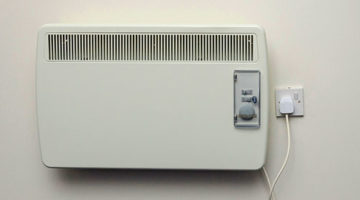
Smart thermostats have become all the range over the last 12-18 months, with more and more people installing them in their home to help lower energy bills and better manage their heating requirements.
All the large heating control companies have jumped on board the bandwagon producing their own offerings, like Honeywell with the EvoHome, Heatmiser and Salus with the IT500. Other technology giants are also trying to grab a piece of the action such as Google who spent over $3billion acquiring the Nest in January 2014 – so there is obviously a huge future in intelligent heating controls.
Smart heating controls can’t always control hot water
While smart heating controls can definitely help people lower their heating bills, some smart heating controls systems don’t allow you to control the hot water. For those with combi boilers, this isn’t a problem since hot water is produced as and when it is required, but if you have a hot water tank this does pose a problem.
As time goes on, more and more people are installing unvented cylinders in their homes (e.g. Megaflo or Joule cylinders). These are great in larger properties because they can service many showers / baths at the same time and the pressure produced by this type of system tends to be very good.
The problem for those with this type of system (and for those with the old style vented heat only boilers) is that hot water tends to be produced and stored until it is needed and smart controls aren’t able to control this.
The Nest’s inability to schedule hot water
If you look at the Nest which is by far the most popular smart heating control system, (due to the marketing power of Google!), they recommend getting the installer to disable the heating channel of the programmer when they install the Thermostat, but leaving in place the hot water channel – allowing you to still control the hot water with the programmer.

As time goes on, the smart heating control manufacturers have built the ability to control hot water feature into their units – the British Gas Hive for example could not do this in the first instance, however the latest release does allow you to produce hot water, however at present this is still a failing of the Nest intelligent thermostat. Since the Nest is the most popular intelligent heating control, it seems peculiar that it has not yet been integrated into the system, however we think this stems from it originating in the USA – where this is not such a big issue.
Hopefully in time the Nest will bring in this functionality, however for now if you are looking to control your hot water as well as your heating from your Smart heating controls then you are going to need to look beyond the Nest unfortunately!
Think we missed something? Do you have a different opinion?
Comment below to get your voice heard…












The new Nest v3 does finally add hot water control to the Nest system. Should be widely available from mid-December 2015.
Hi,
i had recently boiler and megaflow tank installed with Nest thermostat by a certified engineer. I paid £200 for the thermostat device itself. The biggest problem I found that boiler (hot water) starts and Nest does not detect it. Nest shows nothing is on. The engineer checked the installation twice but not clue on why is Nest not picking up the boiler ON state when actually it is ON heating water. I really need advise as soon possible otherwise I am going to mark this thermostat faulty and ask for refund.
Does the Nest show the hot water as being on when scheduled using the Nest? it should do because how does your hot water even turn on if not turned on by the Nest Thermostat itself.
If you have found that the Hot water turns on unscheduled then this will probably be because the antibacterial mode is turned on, this will heat your tank if it detects that it has not been heated for two .consecutive hours within the last 48hours to prevent bacteria growth in the tank. The nest will not show the hot water as heating at this point but will have an icon showing that bacteria mode is activate (which is heating)
It is now the case that the latest Nest Thermostat does control hot water as well as heating.
Thanks for this information. My 3rd generation Nest has a hot water scheduling feature, but doesn’t actually switch the HW on when scheduled. Is this normal for 3rd generation systems?
Hi Peter, no – this isn’t normal to be honest. I would get a plumber to take a look.
My newly installed Nest hot water feature works on and off. The icon shows water on but does not change to orange but the water does not heat up. I switch to manual on the heat link it change to orange but still no hot water.
Heating works fine